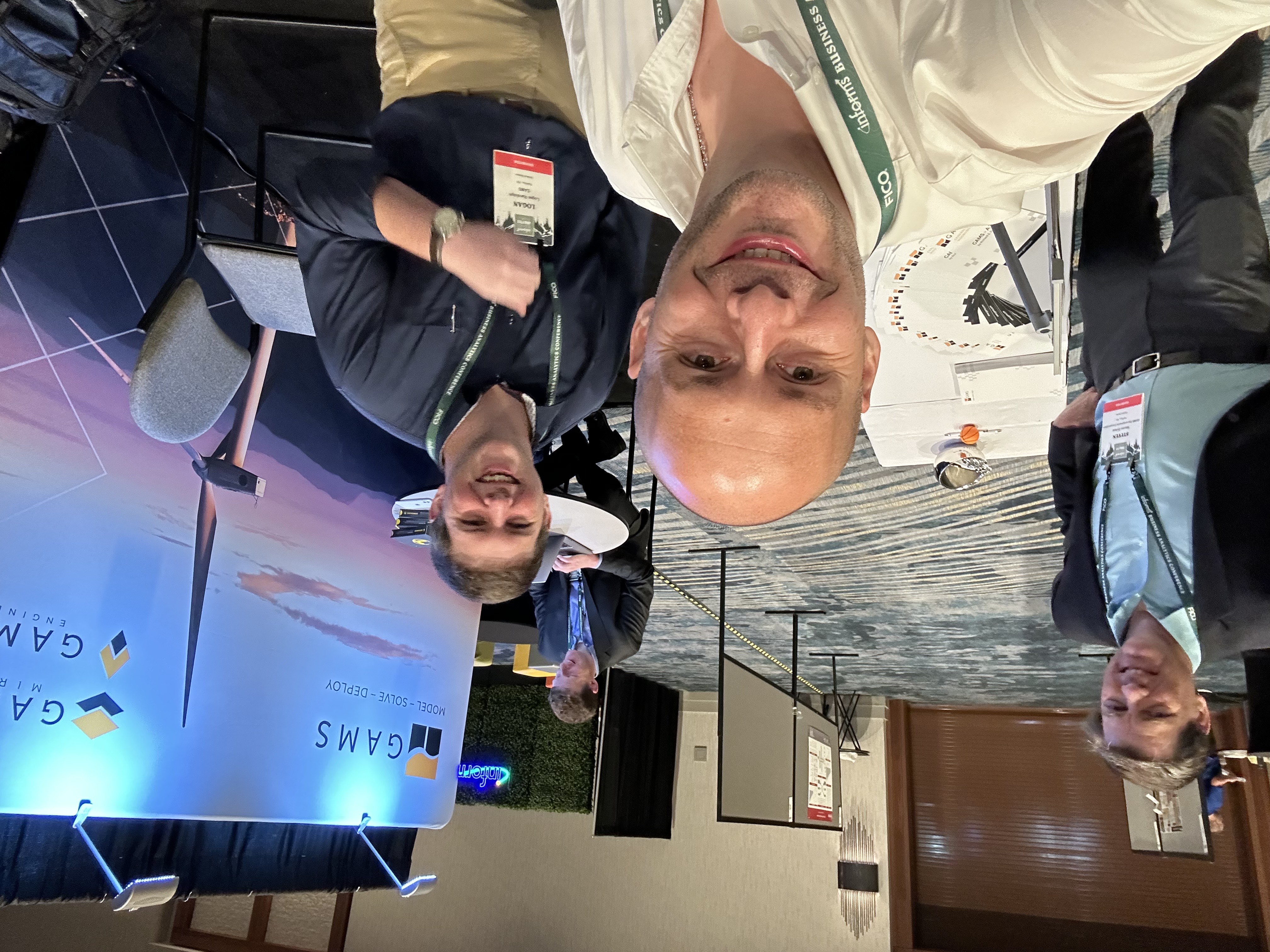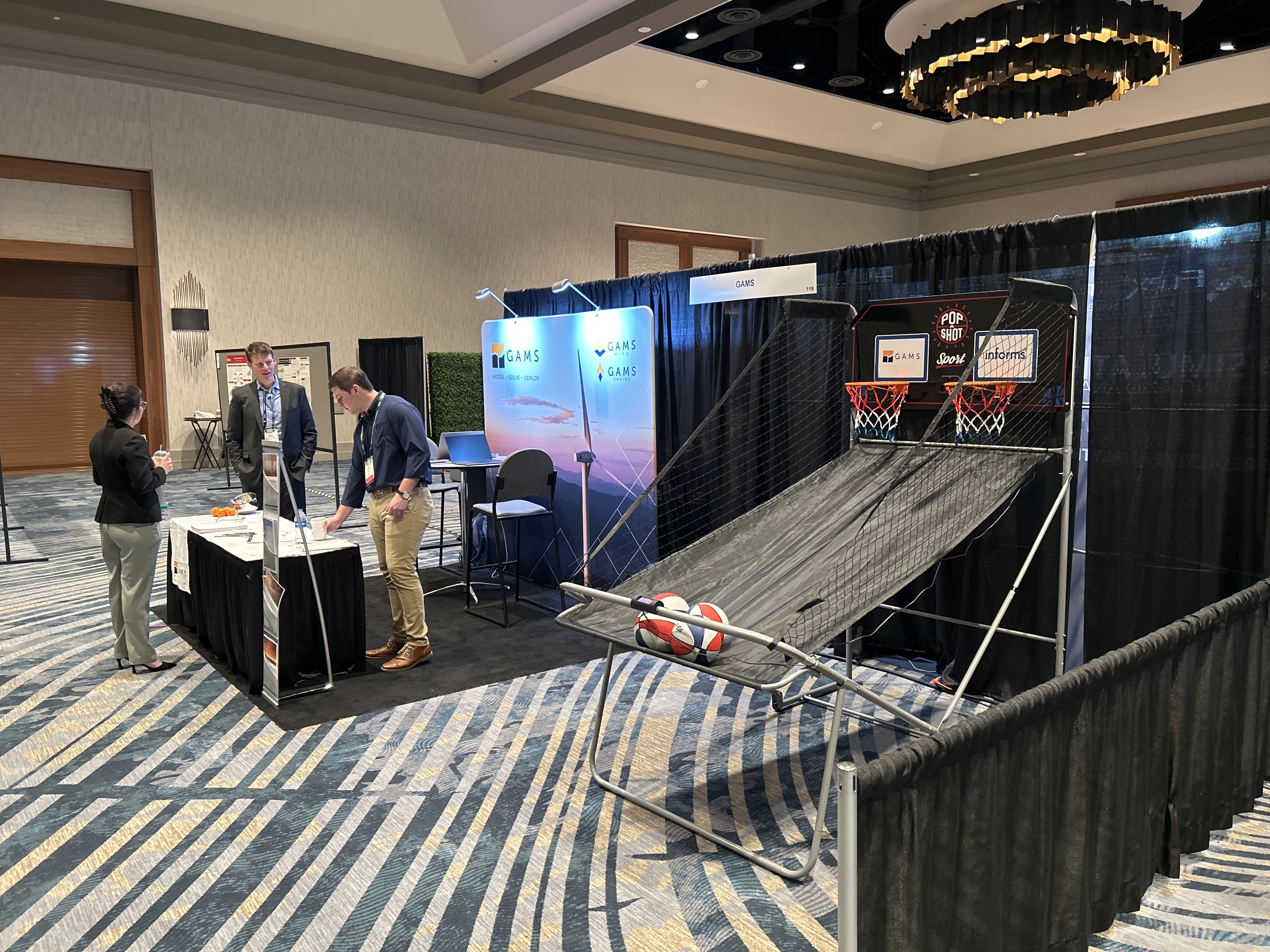The INFORMS Business Analytics Conference of this year took place in Aurora, Colorado. Represented by Adam, Logan, Steve, and Bau, the GAMS team attended the event with the aim of meeting other professionals from different companies and gaining knowledge about the latest advancements in mathematical optimization and modeling.
We were delighted to have the basketball hoop again and our colleagues and friends visited us at our booth for a little game. Thanks to the constant flow of visitors, we were able to connect with many intriguing people at the conference.



GAMS is a frequent participant at INFORMS conferences, which presents an opportunity for GAMS users to exchange their experiences and insights and stay up-to-date with the newest trends in optimization and mathematical modeling.
Adam held a technology tutorial on GAMS ENGINE and GAMS Transfer.
Our Technical Workshop
Model deployment and data wrangling with GAMS Engine and GAMS Transfer
Presented by: Adam Christensen
The right tools help you deploy your GAMS model and maximize the impact of your decision support application.
GAMS Engine is a powerful tool for solving GAMS models, either on-prem or in the cloud. Engine acts as a broker between applications or users with GAMS models to solve and the computational resources used for this task. Central to Engine is a modern REST API that provides an interface to a scalable, containerized system of services, providing API, database, queue, and a configurable number of GAMS workers. GAMS Engine is available as a standalone application, or as a Software-As-A-Service solution running on AWS.
GAMS Transfer is an API (available in Python, Matlab, and soon R) that makes moving data between GAMS and your computational environment fast and easy. By leveraging open source data science tools such as Pandas/Numpy, GAMS Transfer is able to take advantage of a suite of useful (and platform independent) I/O tools to deposit data into GDX or withdraw GDX results to a number of data endpoints (i.e., visualizations, databases, etc.).

